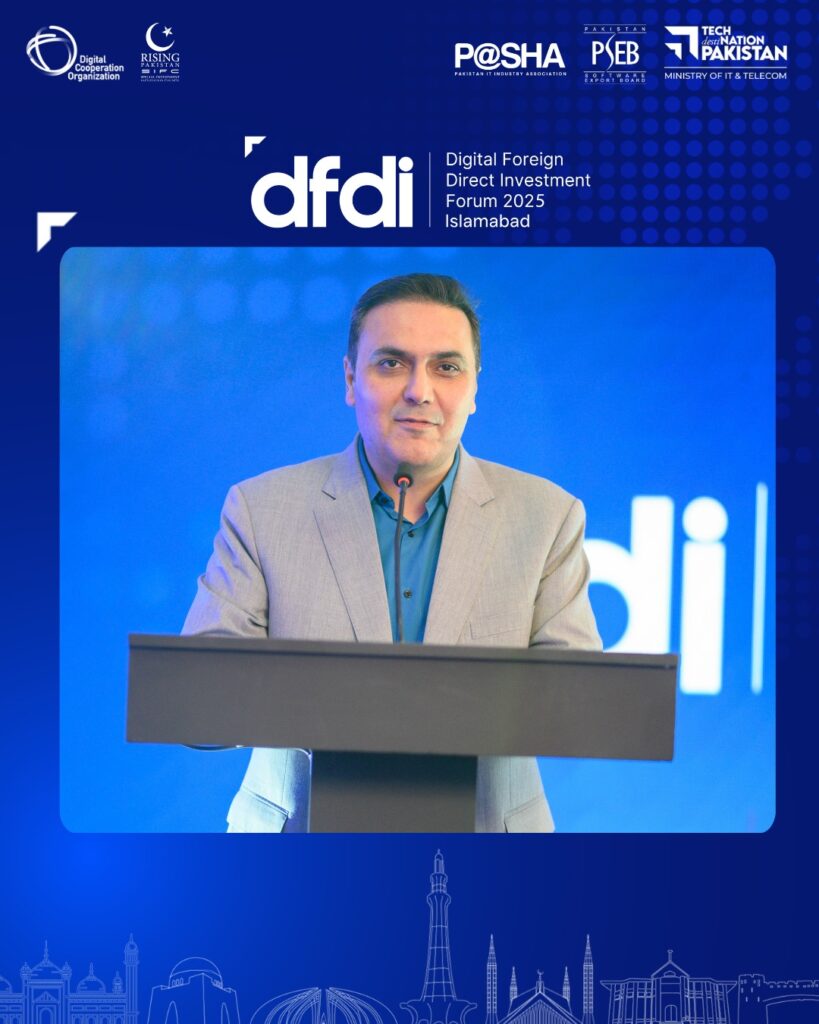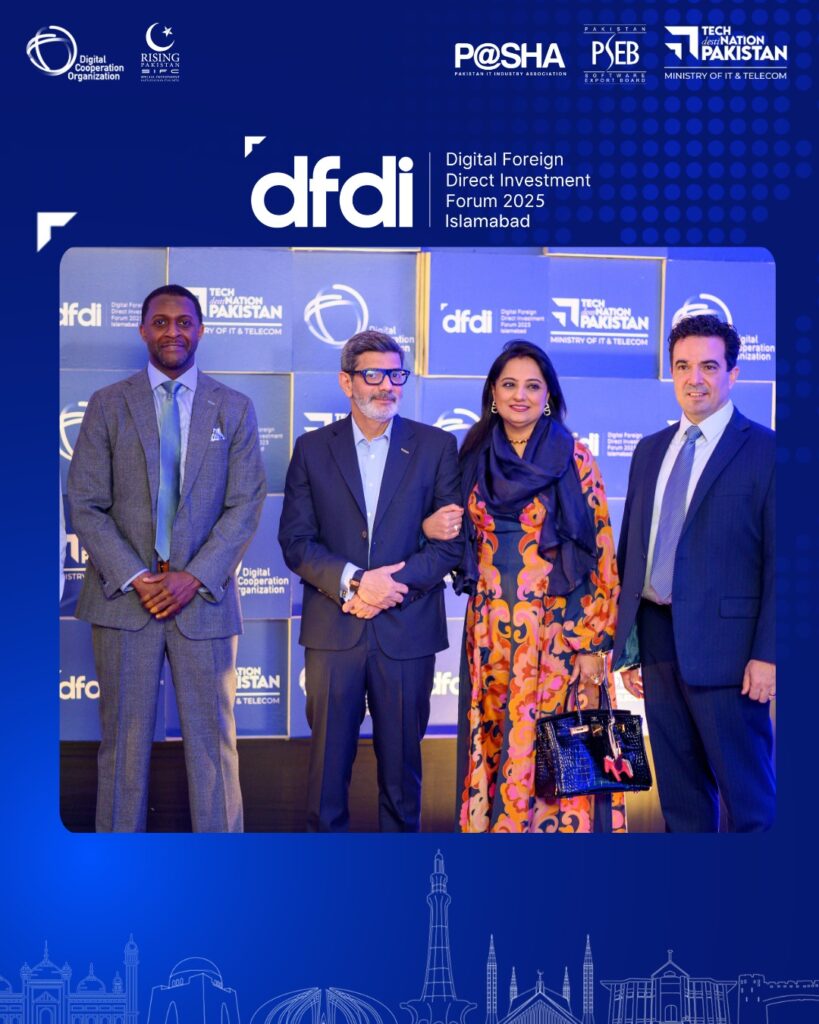Table of Contents
IFC Investment in Pakistan 2025 – A Game Changer for the Country’s Economy
IFC investment in Pakistan 2025 is being hailed as a turning point for the country’s economic trajectory. The International Finance Corporation (IFC), part of the World Bank Group, has committed billions of dollars in direct investments and public-private partnership initiatives to drive sustainable economic growth in Pakistan.
This article explores what the IFC investment entails, why it’s significant, and how it will reshape Pakistan’s economic landscape over the next decade.
Understanding IFC and Its Global Role
Before diving into IFC investment in Pakistan 2025, it’s important to understand what the IFC does. The International Finance Corporation is the largest global development institution focused on the private sector in developing countries. By providing investment, advisory, and asset-management services, the IFC fosters economic growth, reduces poverty, and improves living conditions.

What Makes IFC Investment in Pakistan 2025 So Significant?
The IFC investment in Pakistan 2025 comes at a critical time when Pakistan is actively seeking foreign direct investment (FDI) to stabilize and grow its economy. Here’s why this investment is crucial:
- Boosts investor confidence
- Funds critical infrastructure projects
- Creates millions of jobs
- Strengthens sustainable energy and digital transformation
- Reduces dependency on IMF programs
Sectors Targeted by IFC Investment in Pakistan 2025
1. Energy Sector Development through IFC Investment in Pakistan 2025
The power and energy crisis in Pakistan has long hindered economic progress. With IFC investment in Pakistan 2025, this sector is getting a much-needed overhaul. Over $1 billion will be invested in renewable energy, grid modernization, and clean tech initiatives.
2. Infrastructure Expansion and IFC Investment in Pakistan 2025
Transport, logistics, and urban infrastructure are other key areas where IFC is directing funds. Roads, metro systems, and smart cities will see expansion, making urban life more efficient.
3. Technology and Startup Ecosystem
IFC investment in Pakistan 2025 includes substantial funding for tech incubation centers, venture capital for startups, and digital literacy programs. This is expected to increase Pakistan’s competitiveness in the global digital economy.
Job Creation and Economic Uplift through IFC Investment in Pakistan 2025
The projected job creation due to IFC investment in Pakistan 2025 exceeds 1.5 million over the next five years. By stimulating the private sector, especially in rural and underserved areas, IFC helps decentralize wealth and create inclusive economic growth.
IFC’s Focus on Women Empowerment in Pakistan
Women-led businesses and female entrepreneurship are major beneficiaries of IFC investment in Pakistan 2025. Specialized funds and mentorship programs are in place to ensure gender equality in economic participation.
Green Economy Goals and IFC Investment in Pakistan 2025
Sustainability is a cornerstone of the IFC’s strategy. A significant portion of the investment is allocated to green projects—solar farms, sustainable agriculture, and eco-friendly construction methods.
How IFC Investment in Pakistan 2025 Attracts More Global Investors
This influx of capital and credibility serves as a magnet for other international investors. The transparency and risk mitigation policies enforced by IFC reduce perceived risk and promote further foreign direct investment into Pakistan.
Key Partnerships in IFC Investment in Pakistan 2025
The IFC is collaborating with:
- Pakistan Board of Investment (BOI)
- Ministry of Finance
- Provincial Governments
- Leading private sector conglomerates
These partnerships ensure proper execution and regional balance in investment distribution.
Challenges Facing IFC Investment in Pakistan 2025
Despite optimism, some challenges remain:
- Bureaucratic hurdles
- Corruption risks
- Exchange rate volatility
- Political instability
However, strict compliance measures by the IFC and transparency in implementation reduce these risks significantly.
Success Stories from IFC Investment in Pakistan 2025
The IFC investment in Pakistan 2025 is already yielding tangible results across various sectors. These success stories not only validate the effectiveness of the investment strategy but also offer a blueprint for future development and global partnerships.
1. Sindh Solar Power Project – Lighting Up 200,000+ Homes
One of the most transformative projects under the IFC investment in Pakistan 2025 initiative is the Sindh Solar Power Project. Located in the arid regions of Sindh, this project has installed over 400 MW of solar capacity.
Key Outcomes:
- Electrified over 200,000 off-grid households
- Created 3,000+ direct jobs during construction and maintenance
- Reduced carbon emissions by 500,000 tons annually
This success demonstrates the IFC’s commitment to green energy and sustainable living, aligning with Pakistan’s climate action goals.
2. Lahore Technology Incubation Hub – Empowering Startups
Backed by IFC investment in Pakistan 2025, a world-class tech incubation hub was launched in Lahore. This initiative is focused on nurturing homegrown startups in sectors like fintech, healthtech, and agri-tech.
Key Outcomes:
- Incubated over 50 startups in the first 18 months
- Attracted $20 million in private venture capital
- 35% of incubated businesses are women-led
The hub has become a beacon for innovation, attracting global investors and mentors to Pakistan’s thriving tech ecosystem.
3. IFC-Backed Microfinance Expansion in Rural KP and Balochistan
To promote financial inclusion, IFC investment in Pakistan 2025 extended microfinance services to rural and underserved communities in Khyber Pakhtunkhwa and Balochistan. By partnering with local banks and microfinance institutions, IFC enabled thousands of families to gain access to affordable loans.
Key Outcomes:
- 150,000+ microloans disbursed within 2 years
- 65% of borrowers were women entrepreneurs
- Initiated over 20,000 small businesses
This success story highlights IFC’s emphasis on inclusive growth and empowerment of marginalized communities.
4. Karachi Waste Management Overhaul
With a focus on environmental sustainability, IFC partnered with the Karachi Metropolitan Corporation to modernize waste collection and recycling. The project involved smart bins, GPS-tracked trucks, and private contractors.
Key Outcomes:
- Increased waste collection coverage from 40% to 85%
- Created 7,500 jobs in logistics, recycling, and sanitation
- Introduced plastic recycling programs generating alternative fuel
Thanks to IFC investment in Pakistan 2025, Karachi is becoming a cleaner, greener city with modern urban management.
5. IFC-Funded Women-Led SMEs in Punjab
In collaboration with local NGOs and microfinance banks, the IFC launched a funding and mentorship program targeting women-led small and medium enterprises (SMEs) in Punjab.
Key Outcomes:
- 5,000+ women received seed capital and mentorship
- SMEs in apparel, food processing, and e-commerce saw 60% growth
- 1,000+ jobs created in rural communities
This initiative aligns with the broader goals of IFC investment in Pakistan 2025 by supporting gender equality and grassroots entrepreneurship.
6. IFC’s Role in Upgrading Pakistan’s Textile Sector
Pakistan’s textile sector, the backbone of its exports, is undergoing a digital and environmental transformation thanks to IFC investment in Pakistan 2025. IFC provided funds to modernize factories, adopt energy-efficient machinery, and comply with international labor standards.
Key Outcomes:
- 20 textile factories upgraded in Punjab and Sindh
- 30% reduction in water and energy usage
- Access to global markets due to compliance with ESG standards
This success is reshaping Pakistan’s manufacturing competitiveness and sustainability profile.
7. Digital Agriculture Transformation in Gilgit-Baltistan
In the highlands of Gilgit-Baltistan, IFC investment in Pakistan 2025 launched a digital agriculture initiative. Using satellite imagery and AI-driven data, farmers now receive real-time insights on weather, crop health, and market prices.
Key Outcomes:
- Improved crop yield by 40% in pilot districts
- Reduced post-harvest losses by 25%
- Over 10,000 farmers trained in modern techniques
This project exemplifies how the IFC is combining technology and agriculture for smart, sustainable growth in remote regions.
8. Public-Private Health Clinics in Urban Slums
Health is another vital area addressed by IFC investment in Pakistan 2025. IFC has collaborated with private healthcare providers to establish low-cost clinics in underserved urban areas such as Orangi Town (Karachi), Lyari, and interior Lahore.
Key Outcomes:
- Over 500,000 low-income patients served
- Digital health records and telemedicine introduced
- Reduction in maternal mortality in covered areas
This initiative bridges the healthcare gap for millions and demonstrates how IFC blends impact with innovation.
Future Outlook: Where Will IFC Investment in Pakistan Lead Us?
The long-term outlook is optimistic:
- GDP growth projected to exceed 6% by 2027
- Digital transformation across all sectors
- Private sector contributing 80% to total employment
- Increased exports and improved trade balance

FAQs About IFC Investment in Pakistan
Q1: What is the total amount of IFC investment in Pakistan 2025?
A: The IFC has committed approximately $3.5 billion for various sectors including energy, infrastructure, and digital innovation.
Q2: Which industries benefit most from IFC investment in Pakistan ?
A: Energy, infrastructure, agriculture, fintech, and small-to-medium enterprises (SMEs) are the top beneficiaries.
Q3: Is IFC investment only for large corporations?
A: No, a significant portion is reserved for SMEs, especially those led by women or based in rural areas.
Q4: How can local businesses get involved in IFC projects?
A: Businesses can apply through the Board of Investment or partner with IFC-affiliated programs.
Q5: Will the IFC investment reduce unemployment in Pakistan?
A: Yes, projections indicate over 1.5 million jobs will be created directly or indirectly by 2030.
Conclusion: Why IFC Investment in Pakistan 2025 Matters Now More Than Ever
IFC investment in Pakistan 2025 isn’t just a financial commitment—it’s a vision for a better, stronger, and more inclusive economy. By investing in people, infrastructure, and innovation, the IFC is helping Pakistan move toward long-term prosperity. Whether you’re a policymaker, entrepreneur, or investor, this is the moment to align with global progress.
Follow us on Facebook for Quick Response & Quires – Digital Foreign Direct Investment (DFDI)
